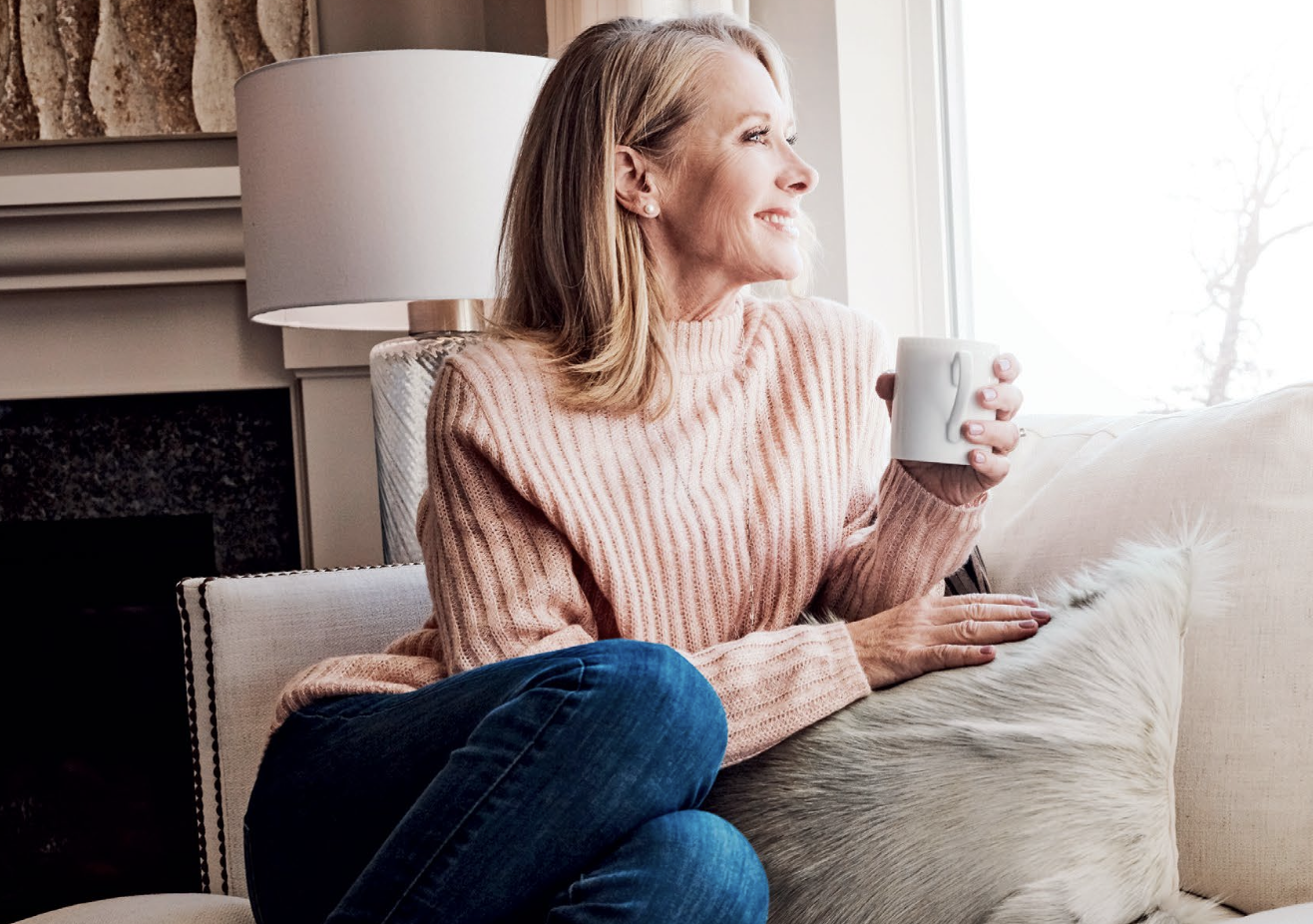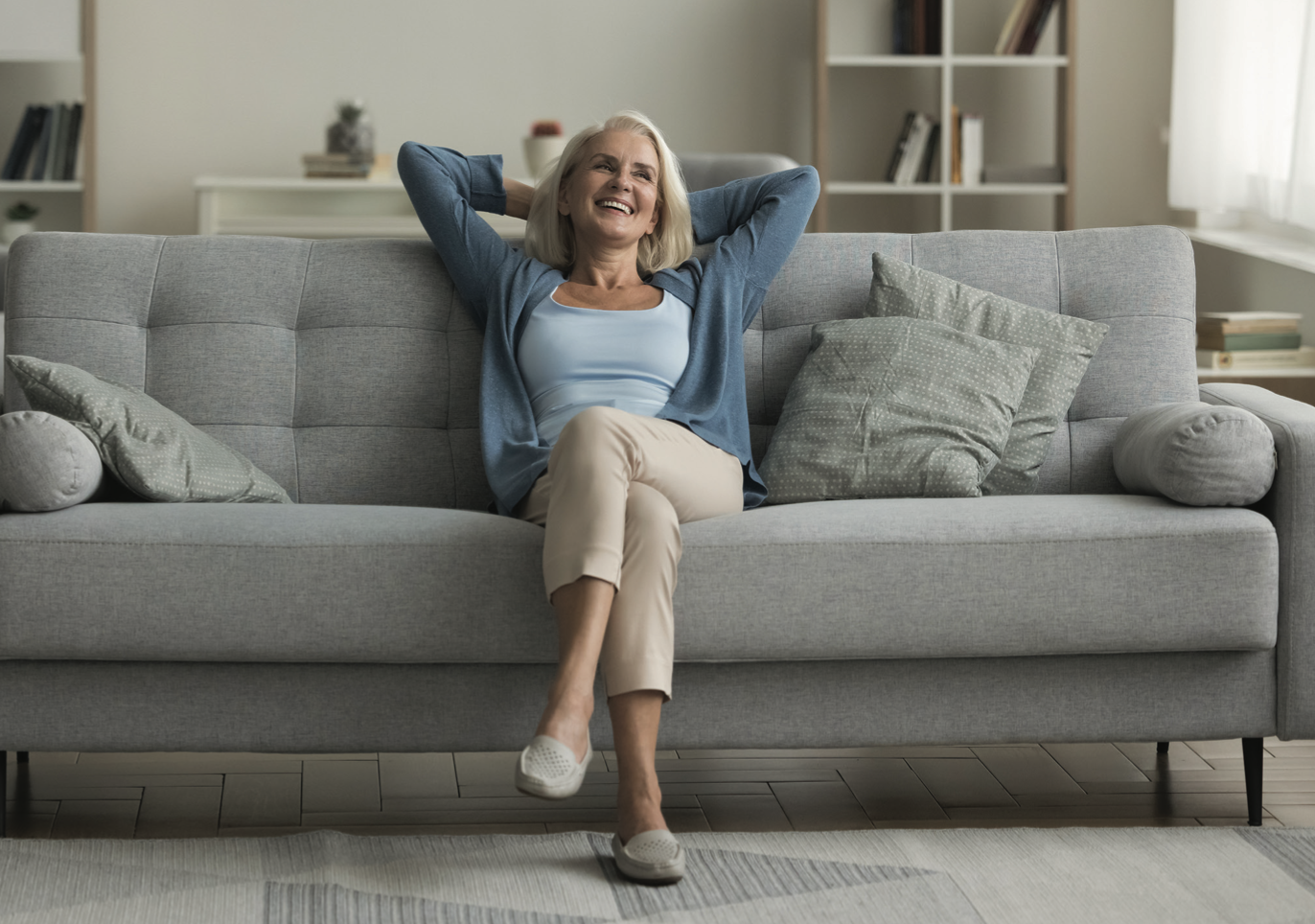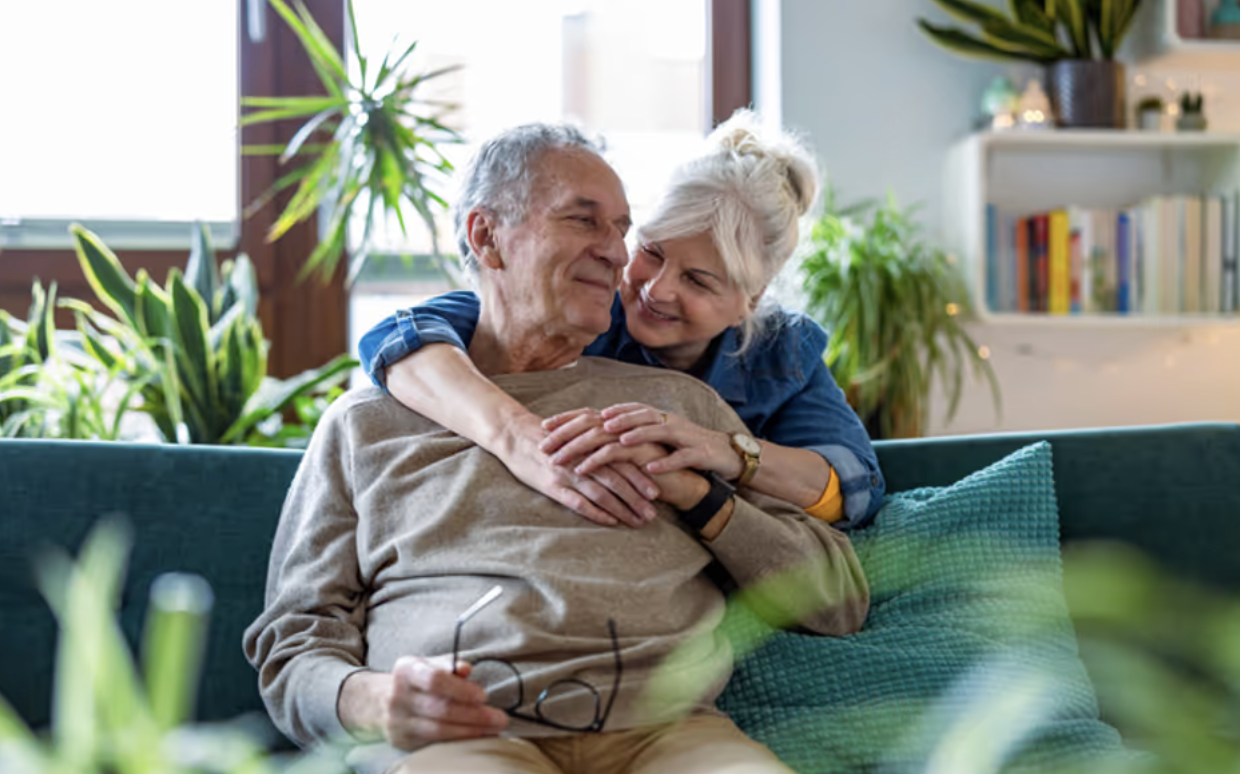By Caroline Fortin
Solitude need not lead to loneliness; in fact, it can be enriching
In 2021, 4.4 million Canadian adults were living alone, more than ever before, and the number of those on their own has been growing over the years since, according to Statistics Canada. For many, solitude is a choice. For others, it’s a matter of circumstances. Living alone can be a challenge, especially if you don’t have a lot of contact with other people, but it has its upsides—if you make the most of it.
Loneliness and Social Isolation
First, you need to know that living alone doesn’t mean you will automatically experience loneliness or isolation, which are actually two different states. “Loneliness is the gap between what we want our interpersonal relationships to be and what they are, so it’s a subjective concept,” says Dr. André Tourigny, who practises family medicine and is a researcher at the Centre d’excellence pour le vieillissement du Québec (“Quebec Centre of Excellence on Aging”) in Quebec City. “Social isolation, on the other hand, can be measured objectively: it describes having rare, poor-quality, and brief social contacts, which doesn’t allow for fruitful exchanges. You can feel lonely without being isolated or living alone.”
This could be the case, for example, for two spouses who no longer have anything in common or a caregiver who withdraws from their social network. In short, there isn’t just one type of person who experiences loneliness.
The fact is that with age comes a greater risk of being lonely. “It’s a stage when people experience more losses,” explains psychologist Marie-France Garneau. “The children have left home, you’ve retired, you’ve lost your spouse. You need to adjust when it comes to your identity—find new meaning in your life, a new sense of belonging, of being useful. That is what will help you cope with your loneliness.”
The Benefits
One of the keys to befriending solitude is to be aware of its benefits. You can organize your time the way you like, live at your own pace, and not be accountable to others. Being on your own also allows you quiet time to connect with yourself, to relax and enjoy some silence and its calming effects.
And you get to choose the people with whom you spend time, turning to those who nourish you, not those who drain you. These are benefits that many people long for.
To really enjoy your own company, you need a bit of self-confidence. “When you have a solid foundation, you’re less likely to look outside yourself for validation,” says psychologist Julie Pelletier. “People who have a rich inner life, who have learned to nurture their self-esteem and their passions and to listen to their own needs, are more likely to feel good about themselves and to overcome loneliness.”
One of our readers, Marie-Jeanne, can speak to the truth of that: “Being happy on your own requires you to do a lot of work on yourself. You need to understand that your happiness isn’t found in other people but in you. For a long time, I thought I had to live with someone to be happy, but I realized that I was forcing myself into a way of life that I thought was the norm. It’s also important to have friends who respect your privacy, so that you don’t feel invaded.”
The Art of Living Alone
There are things you can do to ensure that you make the most of the solo life.
• Find activities that fit your interests.
“When you’re looking for a new pastime, start with your own needs and what you are drawn to,” Pelletier advises. “It has to come from you to be satisfying.” There’s no need to get a library card if you never read for pleasure or visit your local branch for activities, for example. Instead, you can reconnect with a cultural activity or sport, pick up a passion you had left behind, or try something new that’s up your alley.
Sometimes, after a life devoted to work and family, people have no idea what excites them. “In that case, you can ask yourself a few questions,” Garneau suggests. “‘What did I enjoy doing before I had kids? What am I good at? What are my dreams? Am I more active or contemplative? What excites me?’”
• Find a confidant.
Chatting with a neighbour, a store clerk, or strangers at the park is fine, but it’s relationships that are “meaningful, marked by real feelings, that are good for mental health,” Pelletier says. Most often, these involve people we’ve known for a long time. Friendship is so essential that, according to an Australian study over a 14-year period, the death of a close friend can affect mental and physical health and social functioning for as long as four years after the person has died. Although it’s possible to create new ties at any age, the time it takes to get to know someone well can make that difficult.
“You’ll build connections more quickly with people who are going through the same thing as you, such as a bereavement,” she says. “That brings people together, although the relationship isn’t going to be as rich as one with a long-time friend.” If you’re lucky enough to get along well with your siblings, nurture those bonds. The important thing is to have someone with whom you can have deep conversations about what concerns you.
• Make yourself useful.
This can simply mean caring for a pet, which gives meaning to daily life, Garneau says: “Also, if you’re a believer, you can get involved in your parish or other faith community.” Or you can volunteer: cook for people in need, drive a neighbour to the hospital, or offer to call someone to break their isolation.
“Feeling useful is a happiness factor that directly affects self-esteem and mental health,” Pelletier says. “Studies show that altruism has a positive effect on anxiety and depression.” For example, Lucie Dandenault found that she benefited from mentoring others and doing follow-up phone calls at a help centre. “Three years ago, I also created a Facebook page for retired people in Quebec who enjoy sports, and it now has 2,800 members.”
• Take care of yourself.
Millennials call this “self-care.” Broadly speaking, it involves regularly nurturing your spirit and your body. Don’t forget: physical activity is good for your mood. And cultivating your inner garden, whether through spirituality, mindfulness, or meditation, is good for the soul. You contribute to this by setting goals for your day, either for the short term or the medium term.
When You Feel Blue
When you live alone, you’re your own mirror. “You have to pay attention to worrisome psychological signs just as you watch for concerning physical signs,” Pelletier says. “When you notice a big difference in how you spend your time or how you feel, that’s a red flag. An overall lack of interest is a major warning sign.”
If you have negative thoughts, a drop in energy, or insomnia, if you neglect your basic hygiene, you’re eating less or a lot more, or you’re letting yourself go, you need to take action.
“Some people need support to find out what is meaningful for them,” Garneau says. “They can call upon a professional, such as a psychologist.”
You can also ask for help at a local community centre or seniors’ centre, or at organizations such as the Canadian Mental Health Association. The same goes for social workers, who can steer you towards available resources.
Helpful Reading
• The Art of Being Alone: Solitude Is My Home, Loneliness Was My Cage, by Renuka Gavrani (Manjul Publishing House, 2024).
• Living Alone and Loving It: A Guide to Relishing the Solo Life, by Barbara Feldon (Simon and Schuster, 2007).
• On My Own: The Art of Being a Woman Alone, by Florence Falk (Three Rivers Press, 2007).
• Solitude: In Pursuit of a Singular Life in a Crowded World, by Michael Harris (Penguin Random House, 2017).






